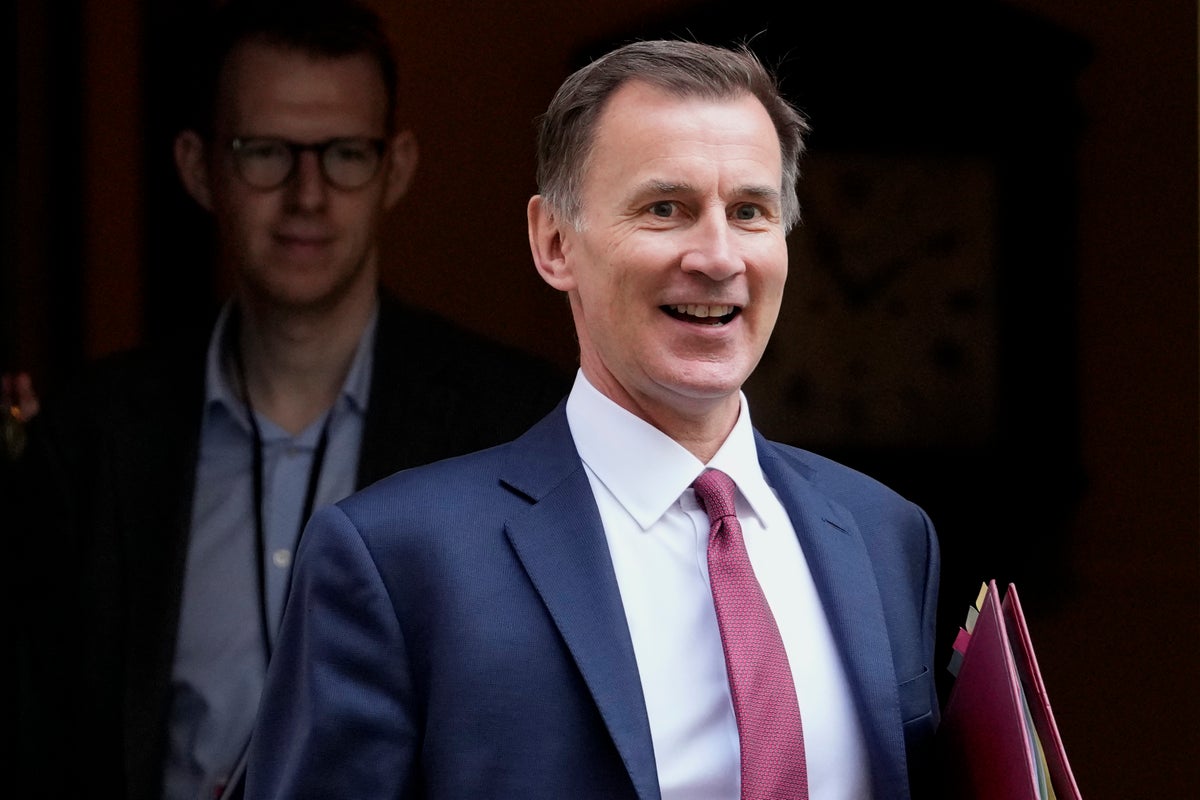
Chancellor Jeremy Hunt has all but ruled out the UK opening up its visa system to Indian students and workers in order to secure a much-awaited post-Brexit free trade agreement.
Speaking in New Delhi, where Mr Hunt was engaged in trade talks with his Indian counterpart on Monday, Mr Hunt told The Independent it was “difficult to imagine how much more we could give on that front”.
The issue of visas for Indian nationals to work and study in the UK has long been seen as a sticking point in the talks over a trade deal, and a Diwali 2022 deadline set by former prime minister Boris Johnson was missed after home secretary Suella Braverman said she was worried a deal would lead to an “open borders migration policy with India”.
Now the UK’s stance appears to have hardened further, with a No 10 spokesperson telling journalists last week that “to be crystal clear, there are no plans to change our immigration policy to achieve this free trade agreement”.
The Independent understands that visas were not one of the major points of discussion between Mr Hunt and India’s finance minister Nirmala Sitharaman during his brief visit to New Delhi.
And the issue certainly didn’t appear to impact prime minister Rishi Sunak’s warm welcome from India’s Narendra Modi during the G20 this weekend, where Mr Sunak spoke enthusiastically about being an example of the “living bridge” between the two countries and the final details of the trade deal were discussed in bilateral talks.
India's prime minister Narendra Modi (R) hugs Britain's Rishi Sunak as he arrives for the G20 in Delhi— (POOL/AFP via Getty Images)
The Indian government is now denying ever pushing for more visas, with its envoy to London Vikram Doraiswami telling Times Radio last week: “We never said that the visas are part of our ask.”
Mr Hunt suggested there was no scope to offer more visas for Indians “given that moving to a points based system has led to a big increase in the number of visas given to Indian workers”.
“I believe Indians are [already] the single biggest nationality for student visas. The UK is giving a lot of visas, so that living bridge is happening.”
Mr Hunt would not commit to a new deadline for a free trade agreement to be signed, but observed that there had been a “step change in the relationship” with Mr Sunak now in No 10.
“From the prime ministers of both countries there is more urgency and more momentum to try and close a deal than I have ever seen,” he said.
Speaking earlier in the day, Mr Hunt told reporters that a deal “could” be agreed before the end of this year, adding that “it just depends on what happens in the next few weeks”.
After his talks Ms Sitharaman concluded, Mr Hunt announced that Indian companies may soon be allowed by the Modi government to be listed on the London Stock Exchange, a step the chancellor described as “very significant”.
Such a move would make it easier for UK capital to be invested in Indian companies, opening up one of the world’s fastest-growing economies to investors in London.
“The Indian government has never before committed publicly to explore allowing Indian companies to list overseas on the London Stock Exchange,” he said. “There’s a lot more work to do to work out the details but it is a significant step forward.”







